- Home
- H. P. Lovecraft
Shadows of Death
Shadows of Death Read online
Contents
Title Page
Epigraph
Praise for H. P. Lovecraft
Introduction by Harlan Ellison®
The Shadow Out of Time
The Festival
Celephais
The Tomb
The Shunned House
Polaris
The Other Gods
The Strange High House in the Mist
What the Moon Brings
The Doom That Came to Sarnath
The Dream-Quest of Unknown Kadath
Early Tales
The Beast in the Cave
The Alchemist
Poetry and the Gods
The Street
The Transition of Juan Romero
Fragments
Azathoth
The Descendant
The Book
The Thing in the Moonlight
The H. P. Lovecraft editions from Del Rey Books
Copyright Page
“The oldest and strongest emotion of mankind is fear,
and the oldest and strongest kind of fear
is fear of the unknown.”
—H. P. LOVECRAFT
PRAISE FOR
H. P. LOVECRAFT
“Lovecraft’s fiction is one of the cornerstones of modern horror.”
—CLIVE BARKER
“H. P. Lovecraft has yet to be surpassed as the twentieth century’s greatest practitioner of the classic horror tale.”
—STEPHEN KING
“Lovecraft’s influenced people as diverse as Stephen King and Colin Wilson, Umberto Eco and John Carpenter. He’s all over the cultural landscape. . . . Lovecraft is a resonating wave. He’s rock and roll.”
—NEIL GAIMAN
“A master craftsman, Lovecraft brings compelling visions of nightmarish fear, invisible worlds, and the demons of the unconscious. If one author truly represents the very best in American literary horror, it is H. P. Lovecraft.”
—JOHN CARPENTER
“Reading Lovecraft is more than experiencing the creations of a bizarre and fitful mind through the medium of exquisite prose. It’s far more chilling than that. . . . What you read is what he lived, and that’s the scariest thing of all.”
—WALTER KOENIG
Tolerable Terror
or,
To Read Him Is to Fear Him
Introduction by
Harlan Ellison®
NOW HERE’S the peculiar part. The part that now, sixty years later, I remember as being odd, being peculiar. In retrospect.
Both of them were smart, my mother and father. Very nice people, you’d have liked them. They may or may not have been well-read; I was too young to make that value-judgment; I was eleven, twelve, something like that. But they were hardly what anyone would call uninformed or ignorant of the World War II milieu in which they existed. We’re talking mid-Forties.
Understand: I taught myself to read when I was two or three, very precocious. I’d read anything. I read everything. But here’s the peculiar part. Other than in my room, where there were all manner of books and comics and Mechanix Illustrated and The Sporting News and reading material from everywhichwhere, there were very few books in our house. In Ohio, in the Forties.
There were two narrow bookcases in the living room, built in as sort of curio cabinets on either side of the fireplace, what my Aunt Maxine used to call tchotchkeh repositories; and there were a few books on those shelves; but they seem to me now—as I guess they did back then—a disparate congeries of not-too-notable titles.
There was a Maugham or two, THE RAZOR’S EDGE and ASHENDEN; a couple of Frank Yerby historicals; one or two Clarence Budington Kelland potboilers, one of which was SCATTERGOOD BAINES; a book I now understand was quite a popular title back in the day before My Day, weird title: HELL FER SARTAIN; an Ellery Queen mystery and ONLY YESTERDAY by Frederick Lewis Allen; Louis Bromfield, Hervey Allen, Hilton’s GOOD-BYE, MR. CHIPS; and Pocket Books #1, Hilton’s LOST HORIZON. There was a copy of the famous BURMA SURGEON autobiography by Gordon Seagrave . . .
(And what strange linkages Destiny forges for us: years later I became friends with Seagrave’s son, Sterling, and we almost lost our lives together on a snowstorm-swept highway outside East Chicago, Indiana. But that’s a story for another evening.)
. . . and there was one other. A thin 49¢ hardcover, a fourteen-story collection that the World Publishing Company of Cleveland and New York (in that order) assured me contained “weird and ghostly tales by a master of the supernatural, selected & with an introduction by” some guy named “August Derleth.”
Apart from a previously-published paperback containing only five stories, this inexpensive cheap-paper hardcover was the first publication of a selection of the tales of Howard Phillips Lovecraft. I stood in front of that tchotchkeh repository, a little boy not yet in his teens, in the heart of the post-Depression lower-middle-class America wherein lay all I knew of the universe, and I plucked forth:
BEST SUPERNATURAL STORIES OF H. P. LOVECRAFT.
The first story in the book was where I started. It was “In the Vault.” It scared the beejezus out of me.
The second story in the book was “Pickman’s Model.” It scared the crap out of me.
Then I read “The Rats in the Walls” and threw the book from me as if all the nameless wraiths and grotesqueries of the stygian depths were slobbering and keening in my wake, squamous and gibbering with the stench of a thousand opened graves rising above their eldritch spawn!
I kid you not, Chief: I didn’t go near that book again for three months. It conjured in my restless nights’ sleep thereafter, the template for nightmares that not even sixty years, and having lived a life, and growing up a little, have been able to usher to quietus.
Before Poe, before Bierce or William Hope Hodgson, before even O. Henry and Mark Twain, I was reading Lovecraft. So all this current foofaraw about him being “rediscovered” is a bit jejune to me. And to the spirit of Augie Derleth, who was there before all of us.
I’d never read him in the pulp magazines—that all transpired before I was born—and by 1937 when he died, he was yesterday’s fishwrap. But I had been exposed to HPL in the most plastic, unformed moments of my youth, and I knew he was remarkable, and something to be feared.
To see the cosmos through his eyes was scary.
Edgar Allan Poe was a strange, troubled man. The poet laureate of the decadent, Arthur Rimbaud, was a pathologically sensitive, deeply secretive dreamer. Woolrich, Octave Mirbeau, Huysmans, Capote, Faulkner, Bierce, Robert E. Howard, avatars of the darkness in the human spirit all and each. Twisted lives, lived uneasily; ill-fitting in their skins. Each and all, teetering on the lip of the abyss.
“Odd” does not encompass it.
“Weird” discredits it.
“Peculiar” is, at its noblest, reductio ad absurdum. It suggests they tricked us, duped us; not greatness, merely fichu. Jean Cocteau: “You are always concentrated on the inner thing. The moment one becomes aware of the crowd, performs for the crowd, it is spectacle. It is fichu.”
Lovecraft was a semi-recluse, and the audience, if any, for which he wrote was one he never saw. Thus, no spectacle. He more than concentrated on “the inner thing.” It was, it must have been, just read the stories migawd there it is, he lived in the inner thing. A number of recent reviewers have been drawn to a particular passage in his groundbreaking and exemplary essay “Supernatural Horror in Literature” (written in 1926–27, revised in the 1930s, but never published in its final form till 1939, two years after his death; and not in separate book form till 1945): “The one test of the really weird is this—whether or not there be excited in the reader a profound sense of dread, and of contact with unknown spheres and powers;
a subtle attitude of awed listening, as if for the beating of black wings or the scratching of outside shapes and entities on the known universe’s utmost rim.”
This was his intent. To scare you. He scared me, long those many years ago, and does still . . . so why not you, too? The “inner thing” that gnawed like rats in the walls of H. P. Lovecraft’s daily existence could only be calmed, borne, tolerated, by the codifying of all that black mist in story form.
To read him is to fear him. But it is a tolerable terror, a spectrum of fear that casts new and different shadows, but does not abominate us, does not turn us away. He seeks to scare us, nothing more.
And for doing the job in loneliness and obscurity, at last the snobbish world of “serious” literature has found him. When I was approached, in November of 2004 by Max Rudin, publisher of the prestigious Library of America, to contribute a “brief comment” about Lovecraft, I found myself once more before the curio bookshelf at 89 Harmon Drive in Painesville, Ohio, at age eleven, reaching for my first Lovecraft, and I wrote for the Library of America these words:
“H. P. Lovecraft was, is, and very likely will always be, the irregularly beating heart of darkness of American fantastic literature. If there is a more obstinately terrifying story in the genre than his ‘Rats in the Walls,’ even the bravest soul should be too petrified to read it.”
And I saw those words in magazines by the dozens, saw them on book dumps and pr releases. Saw them, and smiled. He was getting the attention of the Academy and hoi polloi, the readers of true lit and the browsers of book-club crap. He was now out there, long dead but suddenly mighty, and all the king’s English and all the king’s men would make of him a Jacques Derrida Festschrift, decomposing this and explicating that.
But at the final moments, one need only stand before the bookcase of imagination, withdraw the dusty volume of fear, and read the first lines of the longest story in this colleciton:
From “The Dream-Quest of Unknown Kaddath”: “Three times Randolph Carter dreamed of the marvelous city, and three times he was snatched away while still he paused on the high terrace above it.”
He may be the new flavor for the poseurs and parvenus, but for those of us who ran trembling from Nyarlathotep and Shub-Niggurath and the rest of them there Great Old Ones in the R’lyeh Text, back when we weren’t old enough to cross Euclid Avenue, he was the one who took us by the throat and made us cross vast obsidian spaces to confront alien ideas and paralyzing fright.
That’s what great storytellers do.
And all the rest is merely spinach.
The Shadow Out of Time
AFTER TWENTY-TWO YEARS of nightmare and terror, saved only by a desperate conviction of the mythical source of certain impressions, I am unwilling to vouch for the truth of that which I think I found in Western Australia on the night of July 17–18, 1935. There is reason to hope that my experience was wholly or partly an hallucination—for which, indeed, abundant causes existed. And yet, its realism was so hideous that I sometimes find hope impossible.
If the thing did happen, then man must be prepared to accept notions of the cosmos, and of his own place in the seething vortex of time, whose merest mention is paralyzing. He must, too, be placed on guard against a specific, lurking peril which, though it will never engulf the whole race, may impose monstrous and unguessable horrors upon certain venturesome members of it.
It is for this latter reason that I urge, with all the force of my being, a final abandonment of all the attempts at unearthing those fragments of unknown, primordial masonry which my expedition set out to investigate.
Assuming that I was sane and awake, my experience on that night was such as has befallen no man before. It was, moreover, a frightful confirmation of all I had sought to dismiss as myth and dream. Mercifully there is no proof, for in my fright I lost the awesome object which would—if real and brought out of that noxious abyss—have formed irrefutable evidence.
When I came upon the horror I was alone—and I have up to now told no one about it. I could not stop the others from digging in its direction, but chance and the shifting sand have so far saved them from finding it. Now I must formulate some definite statement—not only for the sake of my own mental balance, but to warn such others as may read it seriously.
These pages—much in whose earlier parts will be familiar to close readers of the general and scientific press—are written in the cabin of the ship that is bringing me home. I shall give them to my son, Professor Wingate Peaslee of Miskatonic University—the only member of my family who stuck to me after my queer amnesia of long ago, and the man best informed on the inner facts of my case. Of all living persons, he is least likely to ridicule what I shall tell of that fateful night.
I did not enlighten him orally before sailing, because I think he had better have the revelation in written form. Reading and rereading at leisure will leave with him a more convincing picture than my confused tongue could hope to convey.
He can do anything that he thinks best with this account—showing it, with suitable comment, in any quarters where it will be likely to accomplish good. It is for the sake of such readers as are unfamiliar with the earlier phases of my case that I am prefacing the revelation itself with a fairly ample summary of its background.
My name is Nathaniel Wingate Peaslee, and those who recall the newspaper tales of a generation back—or the letters and articles in psychological journals six or seven years ago—will know who and what I am. The press was filled with the details of my strange amnesia in 1908–13, and much was made of the traditions of horror, madness, and witchcraft which lurked behind the ancient Massachusetts town then and now forming my place of residence. Yet I would have it known that there is nothing whatever of the mad or sinister in my heredity and early life. This is a highly important fact in view of the shadow which fell so suddenly upon me from outside sources.
It may be that centuries of dark brooding had given to crumbling, whisper-haunted Arkham a peculiar vulnerability as regards such shadows—though even this seems doubtful in the light of those other cases which I later came to study. But the chief point is that my own ancestry and background are altogether normal. What came, came from somewhere else—where, I even now hesitate to assert in plain words.
I am the son of Jonathan and Hannah (Wingate) Peaslee, both of wholesome old Haverhill stock. I was born and reared in Haverhill—at the old homestead in Boardman Street near Golden Hill—and did not go to Arkham till I entered Miskatonic University as instructor of political economy in 1895.
For thirteen years more my life ran smoothly and happily. I married Alice Keezar of Haverhill in 1896, and my three children, Robert, Wingate, and Hannah, were born in 1898, 1900, and 1903, respectively. In 1898 I became an associate professor, and in 1902 a full professor. At no time had I the least interest in either occultism or abnormal psychology.
It was on Thursday, May 14, 1908, that the queer amnesia came. The thing was quite sudden, though later I realized that certain brief, glimmering visions of several hours previous—chaotic visions which disturbed me greatly because they were so unprecedented—must have formed premonitory symptoms. My head was aching, and I had a singular feeling—altogether new to me—that some one else was trying to get possession of my thoughts.
The collapse occurred about 10:20 A.M., while I was conducting a class in Political Economy VI—history and present tendencies of economics—for juniors and a few sophomores. I began to see strange shapes before my eyes, and to feel that I was in a grotesque room other than the classroom.
My thoughts and speech wandered from my subject, and the students saw that something was gravely amiss. Then I slumped down, unconscious, in my chair, in a stupor from which no one could arouse me. Nor did my rightful faculties again look out upon the daylight of our normal world for five years, four months, and thirteen days.
It is, of course, from others that I have learned what followed. I showed no sign of consciousness for sixteen and a half hours, th
ough removed to my home at 27 Crane Street, and given the best of medical attention.
At 3 A.M. May 15th my eyes opened and I began to speak, but before long the doctor and my family were thoroughly frightened by the trend of my expression and language. It was clear that I had no rememberance of my identity and my past, though for some reason I seemed anxious to conceal this lack of knowledge. My eyes gazed strangely at the persons around me, and the flections of my facial muscles were altogether unfamiliar.
Even my speech seemed awkward and foreign. I used my vocal organs clumsily and gropingly, and my diction had a curiously stilted quality, as if I had laboriously learned the English language from books. The pronunciation was barbarously alien, whilst the idiom seemed to include both scraps of curious archaism and expressions of a wholly incomprehensible cast.
Of the latter, one in particular was very potently—even terrifiedly—recalled by the youngest of the physicians twenty years afterward. For at that late period such a phrase began to have an actual currency—first in England and then in the United States—and though of much complexity and indisputable newness, it reproduced in every least particular the mystifying words of the strange Arkham patient of 1908.
Physical strength returned at once, although I required an odd amount of reeducation in the use of my hands, legs, and bodily apparatus in general. Because of this and other handicaps inherent in the mnemonic lapse, I was for some time kept under strict medical care.
When I saw that my attempts to conceal the lapse had failed, I admitted it openly, and became eager for information of all sorts. Indeed, it seemed to the doctors that I lost interest in my proper personality as soon as I found the case of amnesia accepted as a natural thing.
They noticed that my chief efforts were to master certain points in history, science, art, language, and folklore—some of them tremendously abstruse, and some childishly simple—which remained, very oddly in many cases, outside my consciousness.
At the same time they noticed that I had an inexplicable command of many almost unknown sorts of knowledge—a command which I seemed to wish to hide rather than display. I would inadvertently refer, with casual assurance, to specific events in dim ages outside of the range of accepted history—passing off such references as a jest when I saw the surprise they created. And I had a way of speaking of the future which two or three times caused actual fright.

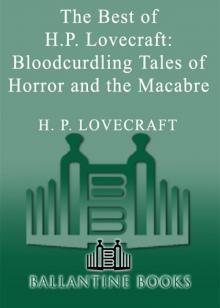 The Best of H.P. Lovecraft
The Best of H.P. Lovecraft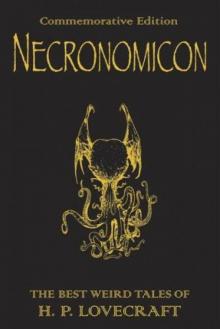 The Definitive H.P. Lovecraft: 67 Tales Of Horror In One Volume
The Definitive H.P. Lovecraft: 67 Tales Of Horror In One Volume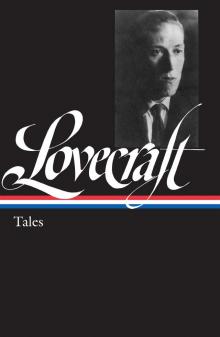 The Complete Works of H.P. Lovecraft
The Complete Works of H.P. Lovecraft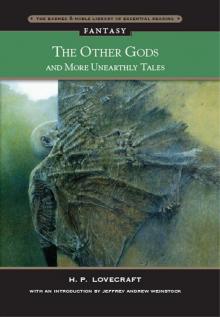 Other Gods and More Unearthly Tales
Other Gods and More Unearthly Tales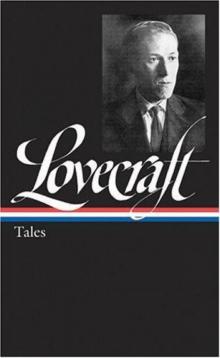 Lovecraft's Fiction Volume I, 1905-1925
Lovecraft's Fiction Volume I, 1905-1925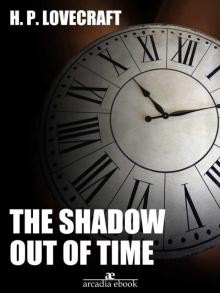 The Shadow Out of Time
The Shadow Out of Time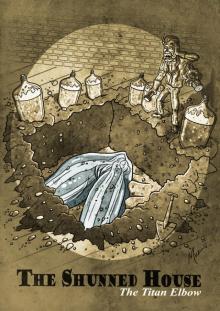 The Shunned House
The Shunned House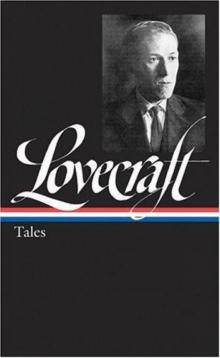 Lovecraft's Fiction Volume II, 1926-1928
Lovecraft's Fiction Volume II, 1926-1928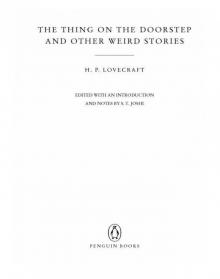 The Thing on the Doorstep and Other Weird Stories
The Thing on the Doorstep and Other Weird Stories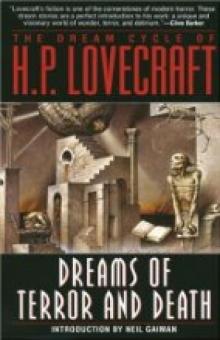 Dream Cycle of H. P. Lovecraft: Dreams of Terror and Death
Dream Cycle of H. P. Lovecraft: Dreams of Terror and Death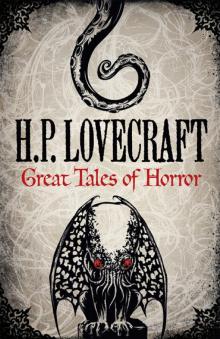 Great Tales of Horror
Great Tales of Horror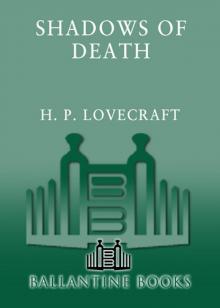 Shadows of Death
Shadows of Death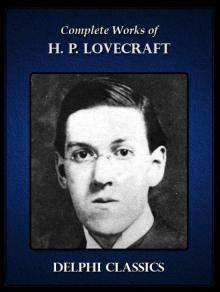 Delphi Complete Works of H. P. Lovecraft (Illustrated)
Delphi Complete Works of H. P. Lovecraft (Illustrated)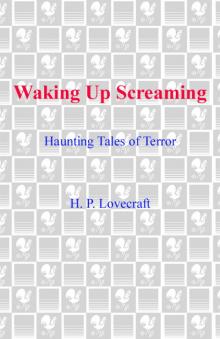 Waking Up Screaming: Haunting Tales of Terror
Waking Up Screaming: Haunting Tales of Terror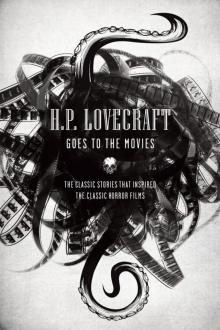 H.P. Lovecraft Goes to the Movies
H.P. Lovecraft Goes to the Movies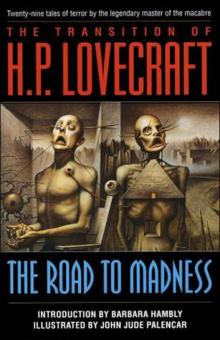 The Road to Madness
The Road to Madness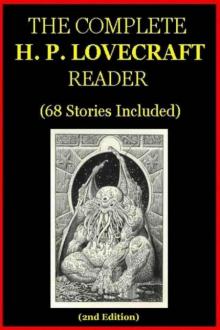 The Complete H.P. Lovecraft Reader (68 Stories)
The Complete H.P. Lovecraft Reader (68 Stories)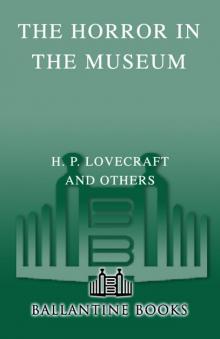 The Horror in the Museum
The Horror in the Museum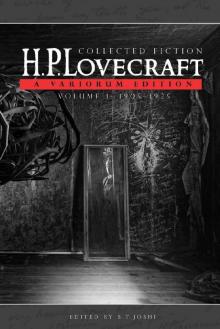 Collected Fiction Volume 1 (1905-1925): A Variorum Edition
Collected Fiction Volume 1 (1905-1925): A Variorum Edition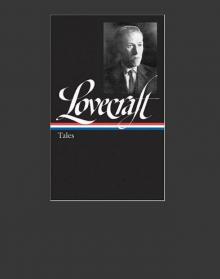 Lovecrafts_Fiction, vol.I_1905-1925
Lovecrafts_Fiction, vol.I_1905-1925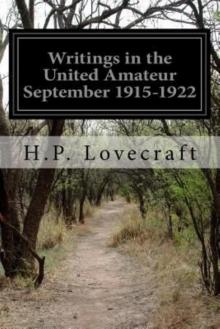 Writings in the United Amateur, 1915-1922
Writings in the United Amateur, 1915-1922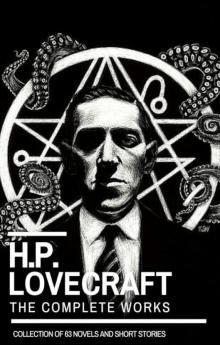 H.P. Lovecraft: The Complete Works
H.P. Lovecraft: The Complete Works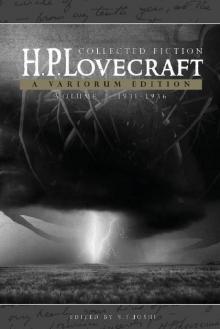 Collected Fiction Volume 3 (1931-1936): A Variorum Edition
Collected Fiction Volume 3 (1931-1936): A Variorum Edition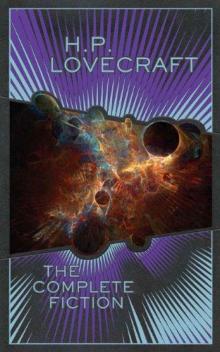 H.P. Lovecraft: The Complete Fiction
H.P. Lovecraft: The Complete Fiction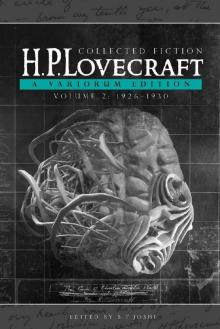 Collected Fiction Volume 2 (1926-1930): A Variorum Edition
Collected Fiction Volume 2 (1926-1930): A Variorum Edition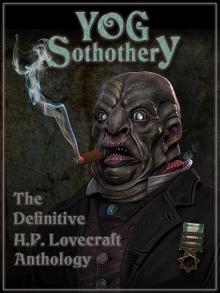 Yog Sothothery - The Definitive H.P. Lovecraft Anthology
Yog Sothothery - The Definitive H.P. Lovecraft Anthology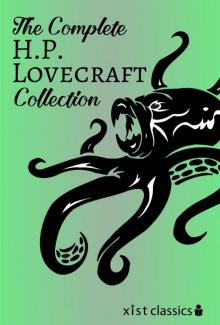 The Complete H.P. Lovecraft Collection (Xist Classics)
The Complete H.P. Lovecraft Collection (Xist Classics)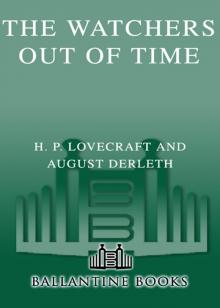 The Watchers Out of Time
The Watchers Out of Time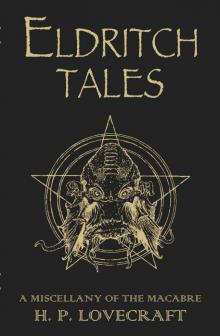 Eldritch Tales
Eldritch Tales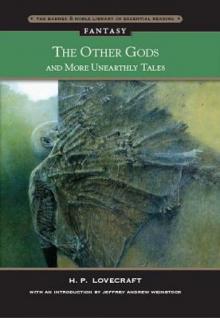 The Other Gods And More Unearthly Tales
The Other Gods And More Unearthly Tales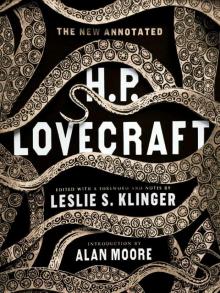 The New Annotated H. P. Lovecraft
The New Annotated H. P. Lovecraft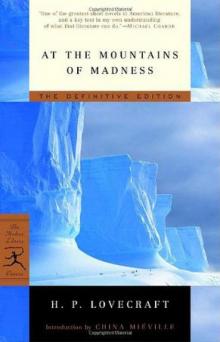 At the mountains of madness
At the mountains of madness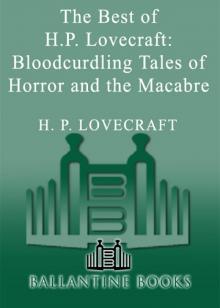 Bloodcurdling Tales of Horror and the Macabre
Bloodcurdling Tales of Horror and the Macabre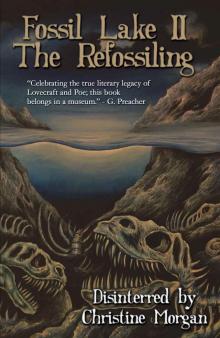 Fossil Lake II: The Refossiling
Fossil Lake II: The Refossiling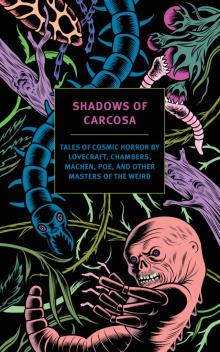 Shadows of Carcosa: Tales of Cosmic Horror by Lovecraft, Chambers, Machen, Poe, and Other Masters of the Weird
Shadows of Carcosa: Tales of Cosmic Horror by Lovecraft, Chambers, Machen, Poe, and Other Masters of the Weird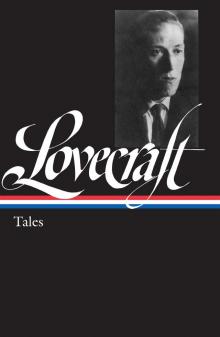 H. P. Lovecraft
H. P. Lovecraft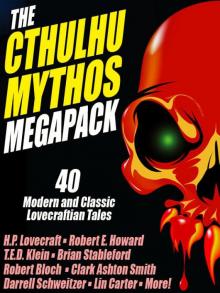 The Cthulhu Mythos Megapack
The Cthulhu Mythos Megapack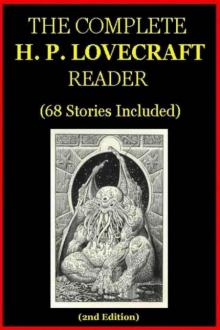 The Complete H. P. Lovecraft Reader (2nd Edition)
The Complete H. P. Lovecraft Reader (2nd Edition)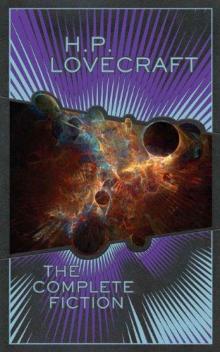 The Complete Fiction
The Complete Fiction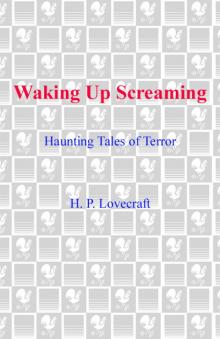 Waking Up Screaming
Waking Up Screaming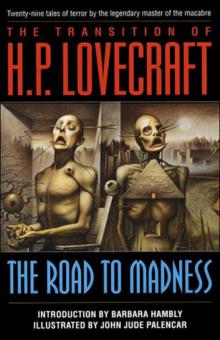 Transition of H. P. Lovecraft
Transition of H. P. Lovecraft![[1935] The Shadow Out of Time Read online](http://i1.bookreadfree.com/i2/04/12/1935_the_shadow_out_of_time_preview.jpg) [1935] The Shadow Out of Time
[1935] The Shadow Out of Time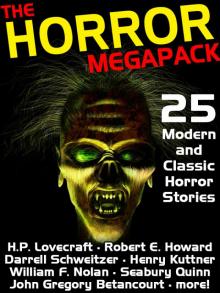 The Horror Megapack
The Horror Megapack